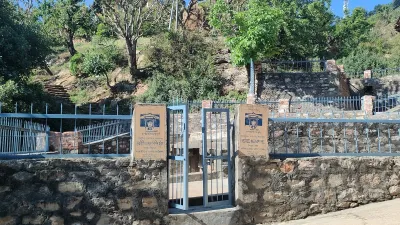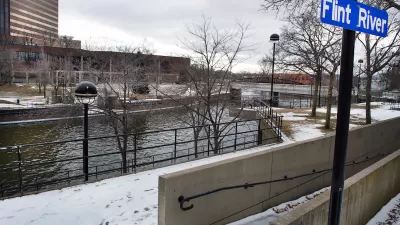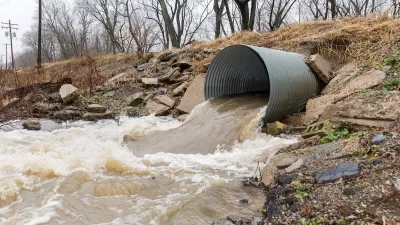In a city where urban water infrastructure ranges from "insufficient" to "nonexistent," Lagos entrepreneurs have developed a bustling trade in "sachet water." Is it time to focus more attention on regulating the sachet industry?
No one is immune from the poor state of the urban water infrastructure in Lagos, Nigeria. Those that have water connections face erratic and sometimes contaminated supply; 70 percent have no access to piped water at all. Of those with "piped" access, two-thirds access that water from community taps.
Enter the sachet industry, commercially purified packets of water sold by the polyethylene sack at 6 cents a pop. For many of Lagos' poor, it is the most affordable option for potable water. Or should we say, "mostly potable"? Recent research shows that contamination in the sachet water trade is rampant.
It's easy to say that the answer is improving traditional water infrastructure (you know: pipes). However, beyond the usual issues of cost and implementation logistics, in Lagos efforts to improve water infrastructure are met by fierce opposition from water hawkers and others who profit from the status quo. In the short term, the best solution may be to focus on those ubiquitous water sachets, not as the best solution, but as the "least-worst" solution.
Thanks to Rachel Proctor May
FULL STORY: On Clean Drinking Water in Lagos: Many Options, Few Solutions

Trump Administration Could Effectively End Housing Voucher Program
Federal officials are eyeing major cuts to the Section 8 program that helps millions of low-income households pay rent.

Planetizen Federal Action Tracker
A weekly monitor of how Trump’s orders and actions are impacting planners and planning in America.

The 120 Year Old Tiny Home Villages That Sheltered San Francisco’s Earthquake Refugees
More than a century ago, San Francisco mobilized to house thousands of residents displaced by the 1906 earthquake. Could their strategy offer a model for the present?

HSR Reaches Key Settlement in Northern California City
The state’s high-speed rail authority reached an agreement with Millbrae, a key city on the train’s proposed route to San Francisco.

Washington State Legislature Passes Parking Reform Bill
A bill that would limit parking requirements for new developments is headed to the governor’s desk.

Missouri Law Would Ban Protections for Housing Voucher Users
A state law seeks to overturn source-of-income discrimination bans passed by several Missouri cities.
Urban Design for Planners 1: Software Tools
This six-course series explores essential urban design concepts using open source software and equips planners with the tools they need to participate fully in the urban design process.
Planning for Universal Design
Learn the tools for implementing Universal Design in planning regulations.
Ada County Highway District
Clanton & Associates, Inc.
Jessamine County Fiscal Court
Institute for Housing and Urban Development Studies (IHS)
City of Grandview
Harvard GSD Executive Education
Toledo-Lucas County Plan Commissions
Salt Lake City
NYU Wagner Graduate School of Public Service





























